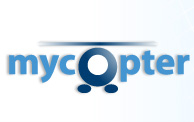- News and Events
- Objectives
- Consortium
- Strategy
- WP1: Management
- WP2: Flight simulation/training
- WP3: Human Machine Interface for controlling a PAV
- WP4: Control and navigation of a single PAV
- WP5: Navigation in the air and interaction with other aircraft
- WP6: PAV operational system concepts
- WP7: Exploring the socio-technological environment of PAVs
- WP8: Dissemination
- Results
- Videos
- Downloads
- Publications
- Press coverage
- Links
EU Research Project
Scientific contact
Max Planck Institute for Biological Cybernetics
 heinrich.buelthoff[at]tuebingen.mpg.de
heinrich.buelthoff[at]tuebingen.mpg.de
Newsletters
 Newsletter #1, September 2011
Newsletter #1, September 2011
 Newsletter #2, March 2012
Newsletter #2, March 2012
 Newsletter #3, November 2012
Newsletter #3, November 2012
 Newsletter #4, August 2013
Newsletter #4, August 2013
 Newsletter #5, August 2014
Newsletter #5, August 2014
 Newsletter #6, March 2015
Newsletter #6, March 2015
WP7: Exploring the socio-technological environment of PAVs
Objective
Approach
Technology issues and communication interfaces linked with PAV: the autonomy of PAVs becomes a central aspect within the future scenario for the widespread use of PAVs. The pilot needs to be involved in this decision making process to a certain degree. What degree of involvement or, the other way round, what degree of autonomy is acceptable and sensible within the technical, legal, and social context needs to be investigated, critically compared and finally transferred into concrete recommendations for technology development.
Regulatory framework and economic ventures: In the current organisational model of air transport, almost all activities are highly regulated. Pilots have to acquire certificates that prove the holder has been trained and has met a specific set of knowledge and experience requirements. Aviation activities are overseen by a number of authorities which have developed various regulations for fields like air traffic control and navigation, aircraft maintenance, medical and security checks for pilots or certification of aircraft (e.g. EASA). Since PAVs are likely to challenge some of these well-founded procedures and their rationales, it needs to be investigated whether this technology triggers “regulatory reflexes” of societies / authorities / legislators, what the motives and causes for these reflexes are, whether they are negotiable and when they could become knock-out criteria for certain PAV concepts or designs.
Transport infrastructure and logistics: From innovation research on new transportation technologies it is well known that in addition to the vehicle technology itself, infrastructure issues play a critical role for the market success or failure of new approaches. Therefore a number of issues related to the infrastructure or the operational environment for PAVs will undergo an in-depth investigation.
Transportation system context: PAVs are envisioned as new vehicles within a highly developed and differentiated transportation system. In order to be successful, they have to operate synergistically with other transportation modes to be economically viable and acceptable from an environmental perspective. A methodological framework will be developed that illustrates interdependences and it will allow for the development of scenarios regarding implementation strategies for PAVs.



